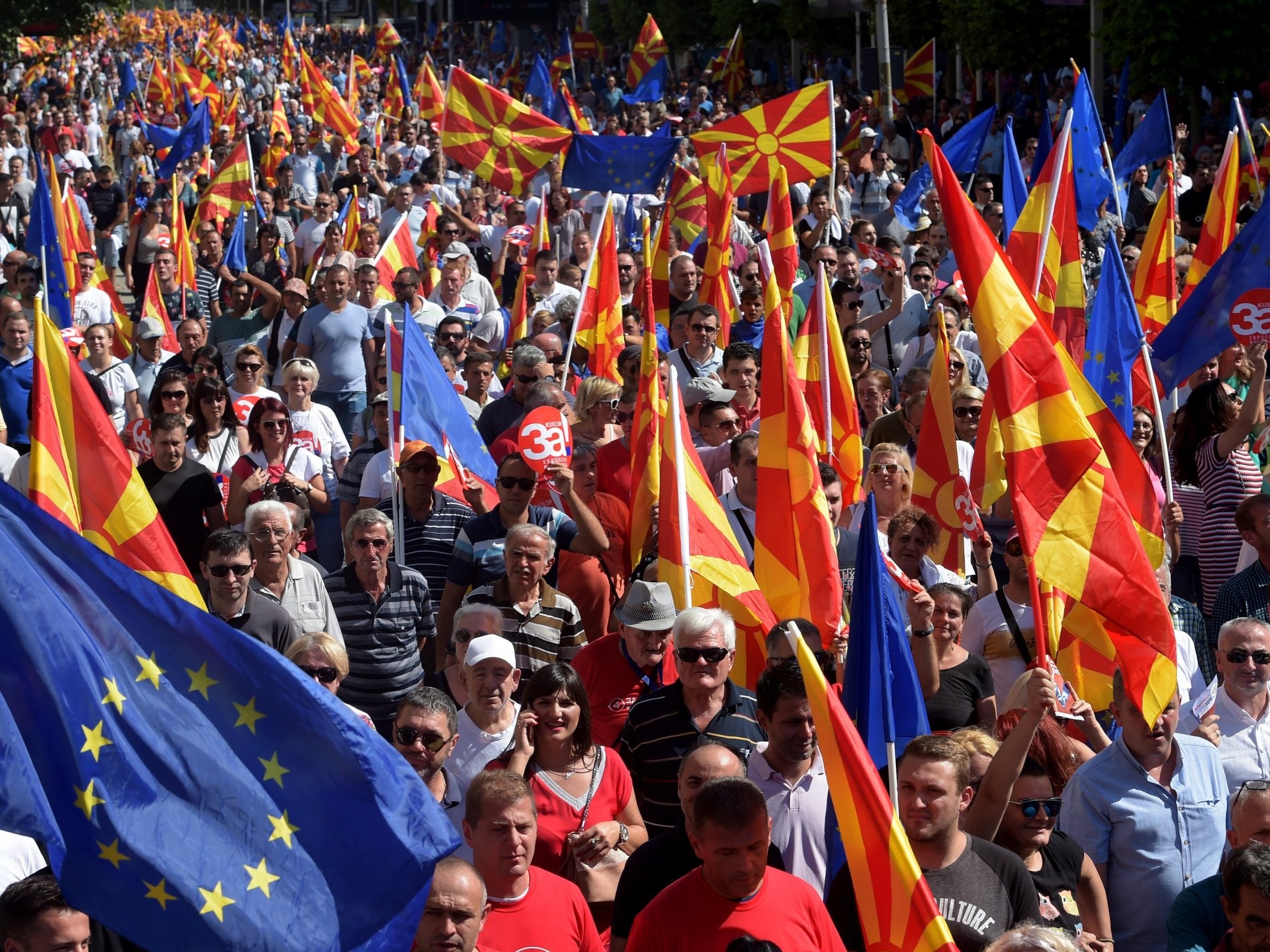US warns Russia over interference in Macedonia referendum on changing name and joining Nato
James Mattis accuses Moscow of funding pro-Russian groups and 'conducting broader influence campaigns'

The US defence secretary has condemned Russian attempts to meddle in a referendum in Macedonia on changing its name.
James Mattis, who arrived in Macedonia on Monday, said there was “no doubt” Moscow had been funding pro-Russian groups in order to defeat the referendum.
“No doubt they have transferred money and they’re also conducting broader influence campaigns,” Mr Mattis said. “We ought to leave the Macedonian people to make up their own minds.”
Macedonians will vote on 30 September on the government’s deal with Greece to change its name to the Republic of North Macedonia, which could lead to the Balkan country joining Nato and the EU.
Any move towards Nato membership by Macedonia is strongly opposed by Russia, which works to combat the expansion of the alliance to areas formerly under Moscow’s influence.
Mr Mattis is the latest in a string of western leaders, including the German chancellor, Angela Merkel, to visit Skopje and urge it to embrace the deal.
“We’re just looking at how do they shape their own future ... not shaped by someone else,” he said en route to Skopje. “We do not want to see Russia doing there what they have tried to do in so many other countries.”
Russia has already been caught out trying to influence the vote.
In July, Greece expelled two Russian diplomats who were accused of supplying funds to protest groups opposing the name change deal. It also barred two other people from entering the country for trying to bribe officials.
Russia denied the accusations and responded in kind by expelling Greeks.
Moscow’s ambassador to Skopje has criticised Macedonia’s ambitions to join Nato, saying it could become a “legitimate target” if relations between Nato and Russia deteriorate further.
Nato has invited Macedonia to begin accession talks with the alliance, but said it would need to change its constitution and adopt a new name first.
The EU has also said it would set a date for Macedonian accession talks, pending implementation of the name deal.
Greece, a member of both Nato and the EU, has refused to accept the Balkan country’s name, arguing it implies territorial claims on the Greek province of Macedonia.
Despite Donald Trump’s portrayal of Nato as an alliance in crisis, recent opinion polls show more than 50 per cent of people are likely to vote, with the majority supporting the membership bids and the name deal.
On Sunday, several thousand Macedonians gathered in Skopje to express their support for Nato and the European Union, and for a change to the country’s name.
Join our commenting forum
Join thought-provoking conversations, follow other Independent readers and see their replies
Comments
Bookmark popover
Removed from bookmarks